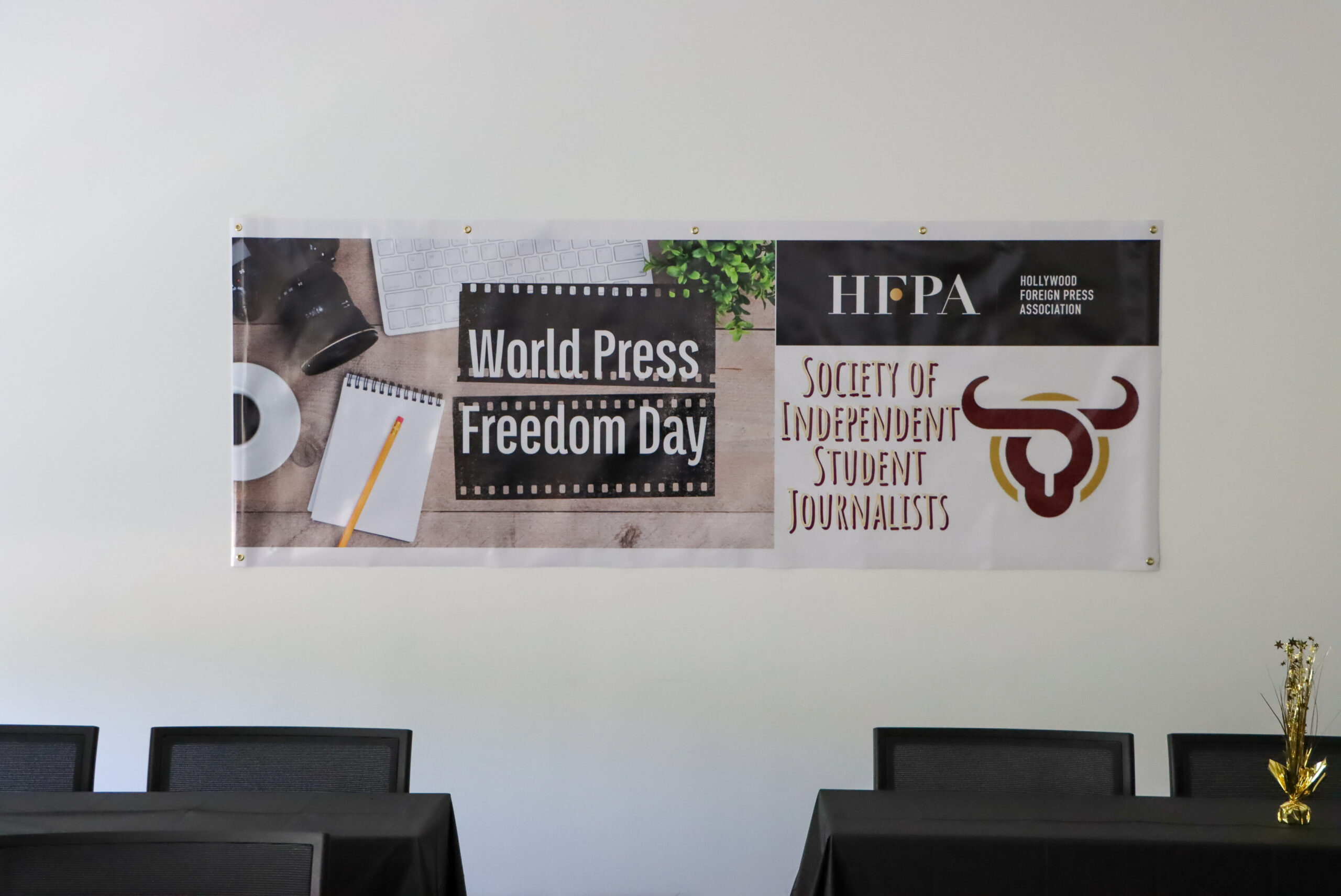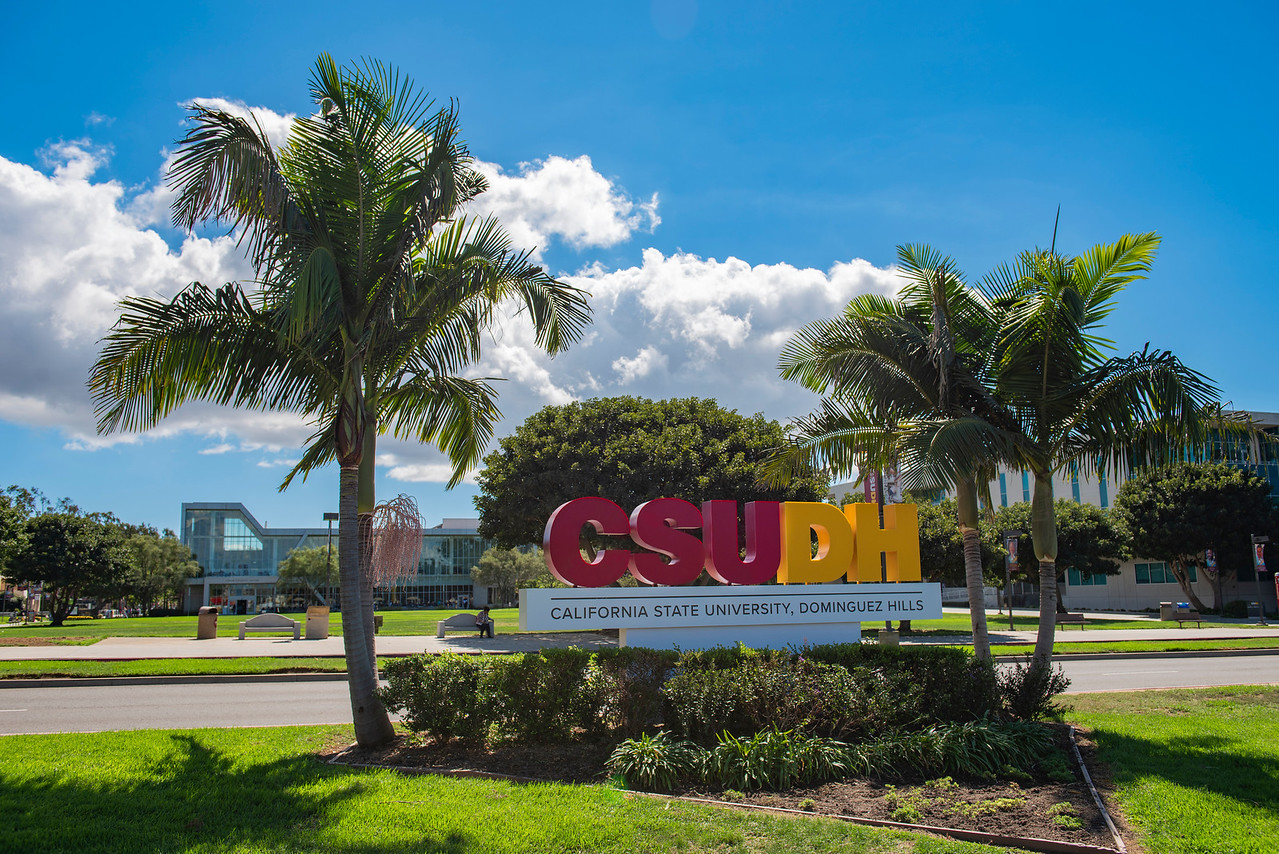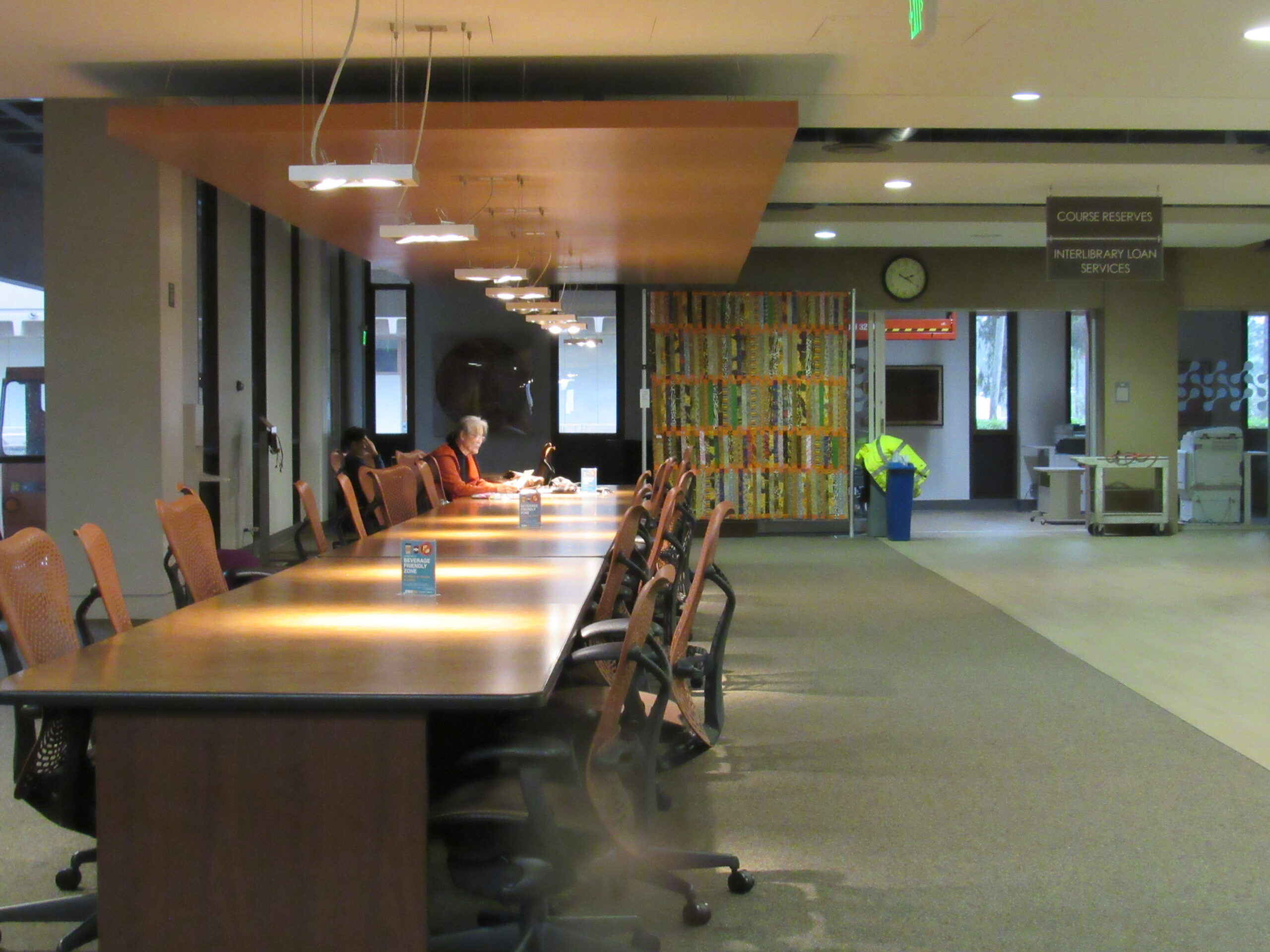World Press Freedom Day is Celebrated at CSUDH. Photo by Catalina Garcia
By Mary McFadden, Staff writer
Every Spring, the United Nations General Assembly celebrates World Press Freedom Day (WPFD). WPFD evokes world governments to recognize the freedom of the press and the news media’s drive for commitment in their pursuit of writing honest and truthful stories impacting communities.
On April 14, California State University, Dominguez Hills’ Society of Independent Journalists (SISJ) hosted their very own event for WPFD. The Hollywood Foreign Press Association (HFPA), a non-profit organization of journalists, provided grants for five students in the CSUDH communication department. This grant was able to support the projects presented by the students on their work and research on the topic of “Lack of Diversity and Inequality in Newsrooms.
There were two guest speakers at the event; Marlon Walker, the managing editor of the Marshall Project, an online non-profit news publication focusing on social and criminal justice issues, and Lucas Villa, Mexican American music journalist, whose work has been published in Rolling Stone magazine, Teen Vogue, LaMezcla.com, among many other publications. The highlight of the conversation was presenting different voices and their impact on society.
In the last few years, emotionally charged topics such as the Black Lives Matter movement, the Presidential election of 2020, and the pandemic have been the primary focus in the media.
“As a black man, covering protests in the wake of George Floyd’s death, it presented me with an opportunity. My job here is to shed light on the situation that is going on at home. I am telling the story in a way that you contextualize everything that is going on, but giving people the power to make the decision for themselves of how to feel,” Walker said.
Walker seeks to encourage journalists to put aside their biases that would hinder them from seeing a situation from a different perspective that they may not have paid attention to.
“That audience is a wide group of people with diverse opinions, backgrounds, cultures, mindsets, and really understanding that you have to do your job in telling the story that everybody in a way can take something from it,” he said. “If you don’t put your biases aside, sometimes, it’s hard for people to really understand the lecture at hand.”
A journalist’s job is not easy, however, for it to make a significant difference for the audience, it needs to be told from a perspective free from partisanship and maintain as much objectivity as possible.
“Seeking out the different voices, even if it takes work to find another perspective, I think that is what we realize more and more. We need more perspectives told, and some of those voices may be harder to find. That is just part of our work now, for us to tell the whole picture,” Villa suggested.
Walker brings up the point, how do you balance who you are as a human being, with what you do every day being a journalist, navigating when it comes to advocacy and information versus affirmation?
“It’s tough, you have an obligation to your readership and you also have an obligation to yourself,” he said. “At the end of the day, you want to make sure when you go to bed; people can still trust you when you put pen to paper.”
“We have also learned that, what you report on, can be the advocacy that you do. Reporting on underrepresented communities, bringing those voices to the surface, telling the stories that aren’t told so often,” Lucas contributed.
Presenting stories and narratives from different viewpoints provides a more diverse conversation.
Walker further adds, “News organizations have grown, in that they have grown by inviting other audiences to the table and being able to diversify and tell stories from their communities.”
The Society of Independent Student Journalists will host World Press Freedom Day next spring, with a new round set of panelists.


